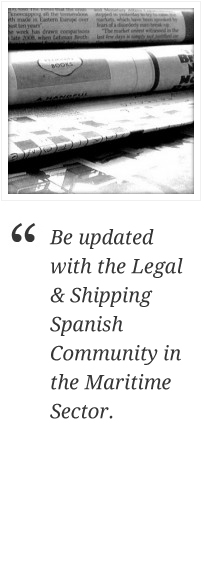June: CIRCULAR 11A/2001
THE IMPORTANCE OF THE SURVEY REPORT IN TH PROBATIONARY PERIOD FOLLOWING THE NEW CIVIL PROCEDURE LAW 1/2000
In our Circular 5A/2000 of December 2000 we were informing that on 9th January 2001 the new regulation of the Civil Procedures, Ley 1/2000 de 7 de enero, de Enjuiciamento Civil (LEC)â€, was coming into force in Spain. This regulation, which basically removes the previous regulation that has been existing for a hundred and twenty years, is being applied as from 9th January 2001.
It is probably the “Dictamen Pericial†or Expert Certificate the means of evidence that has changed more with the new civil procedure law. Before the 9th January 2001 and with our old procedure law of 1881, the value of the survey report on behalf of one of the parties was that of a private document (documentary evidence). In order to be admitted as evidence the report had to be ratified during the probationary period by testimony of witness (witness evidence). However, with the new law the present value of the survey report is that of a proper survey evidence or Expert Certificate (Dictamen Pericial), which is linked to:
- Immediateness principle, meaning that the surveyor who signed the survey report must appear where the hearing is taking place and where the evidence will be practised. If the surveyor does not appear the infraction of his duty will mean that he will be sanctioned with a fine of from Ptas. 30,000 to Ptas. 100,000.
- Publicity and contradiction principles, meaning that all the parties will be able to intervene during the practice of the survey evidence before the Judge who will pass judgement. The surveyor will have to answer as many questions as he is asked and argue his conclusions.
With the old 1881 Civil Procedures Law the survey report on behalf of a party was never a survey evidence or expert certificate and therefore the surveyors normally appeared as testimony of witness to ratify their survey report and to answer “yes†or “no†to the questions being made. If a surveyor was instead proposed as a means of evidence (survey evidence) the intervention of the surveyor was reduced to: asking the parties the convenient explanations in order to clarify the facts. The presence of the Judge was not necessary, the Judge could not ask any explanation to the surveyor, only the parties and the questions to be made to the surveyor had to be accepted by the Judge.
However, with the new law all the surveyors will have to take oath and will have to explain, clarify and complement with contradiction their own survey reports. The parties will be able to request and the Judge will agree unless useless:
a)Â Â Â Â Â Complete statement of the survey report.
b)Â Â Â Â Â Explanation of any of the points in the survey report when the meaning is not clear enough.
c)Â Â Â Â Â Answer the surveyor to questions and objections regarding the method that has been used in the survey report, conclusions and other aspects of the report.
d)Â Â Â Â Â Development of the survey report when requested, or development of related issues.
e)Â Â Â Â Â Criticism of the survey report by the surveyor designated by the opposing party.
f)Â Â Â Â Â Â The Judge can ask the surveyor as many questions as he understands to be necessary and the Judge can also expect any explanation and amplification of the evidence.
Conclusions. The fact that the new law has substantially modified the value of the survey report issued by surveyors designated by the parties (now a real survey evidence) as well as the procedure of the survey evidence with intervention of the parties and of the Judge during the hearing, can mean:
1ª The requirement of high technical and professional competence of the surveyor, given that he will have to be able to explain and clarify all the points of his survey report, answer as many questions as he is asked and argue his conclusions.
In order for his survey report to be valid as an evidence, the surveyor will have to reason and not only explain his points of view.
2ª That the surveyor or survey company counts with a network which will allow him to attend before the Spanish Court where the proceeding is being followed, given the immediateness principle of the new law 1/2000.
3ª The higher dedication of the surveyor: time occupied in the legal proceedings, possible displacements which can obviously increase the cost of the services rendered. However and given the character of survey evidence, the party obtaining a favourable judgement can recover these costs.
4ª The survey report acquires a higher value in court as a survey evidence as it is now not contemplated as a simple private document, therefore becoming more transcendent for the resolution of the trial.
We would therefore suggest P&I Clubs / Members / operators / shipowners to appoint the appropriate qualified and competent surveyors to best protect their interests.

